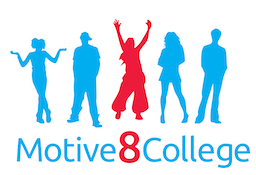This qualification will enable students to develop the knowledge and skills needed when working within a health and social care setting. They will be gaining knowledge of how to care for all ages from birth, adulthood, elderly and end of life care, within a variety of care settings. This qualificati

What the course covers:
This qualification will enable students to develop the knowledge and skills needed when working within a health and social care setting. They will be gaining knowledge of how to care for all ages from birth, adulthood, elderly and end of life care, within a variety of care settings. This qualification extends knowledge built from the level 2 and explores theories.
The Technical Level 3 Extended Diploma in Health and Social Care has been designed to enable students to access Higher Education or assist with progression into the workplace.
This qualification has been designed and written by a team of subject matter experts, and we have involved employers and Higher Education Institutions in the review of the content.
UCAS Points
The completed Extended Diploma will provide the following UCAS Points – D – 72, C – 96, B – 120, A – 144, A* – 168.
What does it cover?
This qualification covers a wide range of key subject areas in health and social care. The Extended Diploma includes a wide range of optional units, allowing students to pursue an interest in the specific areas of social care, health studies and health sciences, while still allowing enough diversity for the optional units to be tailored to suit a student’s preferred progression path.
Who is it suitable for?
This qualification is suitable for students aged 16 or above who wish to progress on to Higher Education.
Experience in a real work environment
Students will be required to attend placement in a real work environment to support their learning. The minimum required number of placement hours is 200 (including 75 hours completed during the Certificate).
Entry requirements of Higher Education Institutions may specify the need for more work experience.
How you will be assessed:
It will be assessed by your tutor or assessor using a range of methods. This could include real work environment experience, written assessments, reflective diaries, campaigns, portfolio of evidence, powerpoints, scenarios and case studies.
What are some examples of suitable work placement settings for students?
Placement is a crucial element of the student’s journey. Listed below are some examples of appropriate settings which could support students:
Residential Care Home
Nursing Home
Day Centre
Children’s Centre
Health Centre
Supported/Sheltered Accommodation
Domiciliary/Community care
Respite Care
Residential Schools
Assessment Centre
Special Schools
Hospital
Specialised Voluntary Groups
How long it takes to complete?
Students will usually be able to achieve the Extended Diploma in two years.
What qualifications can you progress to?
Achievement of the Technical Level 3 Extended Diploma in Health and Social Care supports students’ access to Higher Education and progression into a wide range of job roles within the Health and Social Care sector.
We’re a small, warm, welcoming and exciting place to study. Motive8 College is dedicated to providing vocational qualifications and courses to help young people work towards their ambitions and design their future.
Based in Bradford, but well within the reach of Halifax, Dewsbury and Huddersfield areas by public transport, we provide learning opportunities for 14-16 year olds, 16-19 school leavers and courses for adult students 19+.
The success of our students is at the heart of everything we do. We work with young people in a holistic way, providing them with opportunities to grow and develop in an environment that suits their needs. We offer a bespoke programme of education, skills development, and support to help young people achieve their aspirations – whatever they might be.
© 2025 coursetakers.com All Rights Reserved. Terms and Conditions of use | Privacy Policy